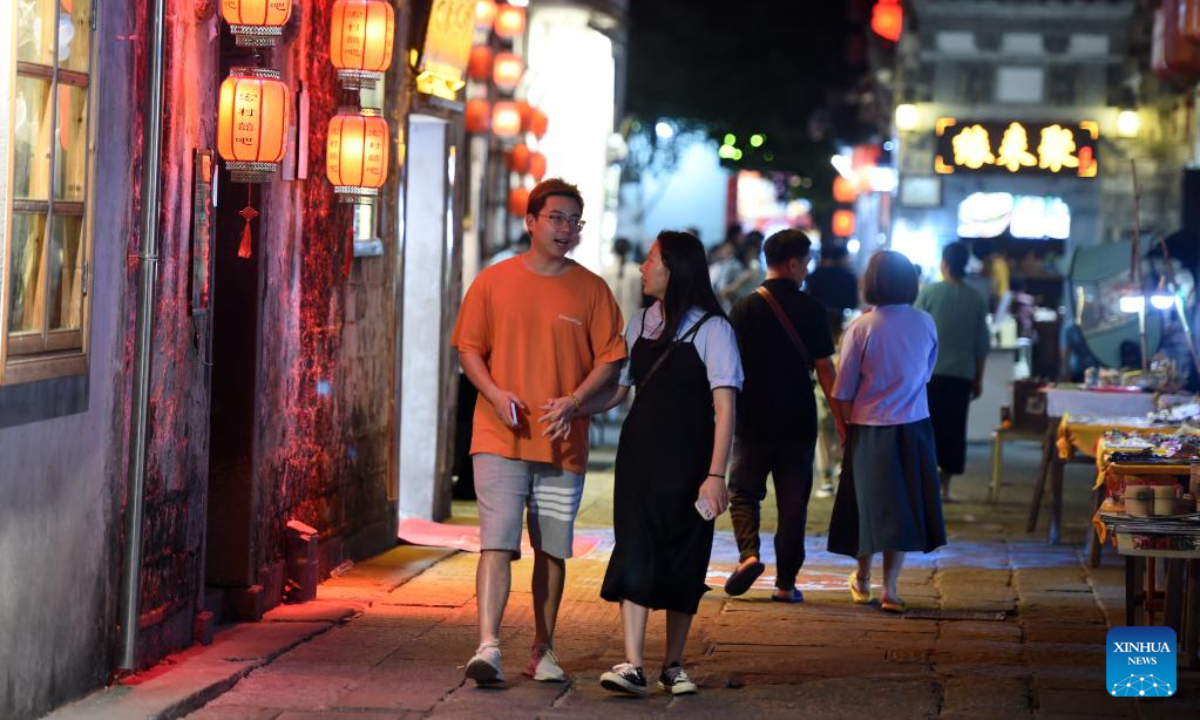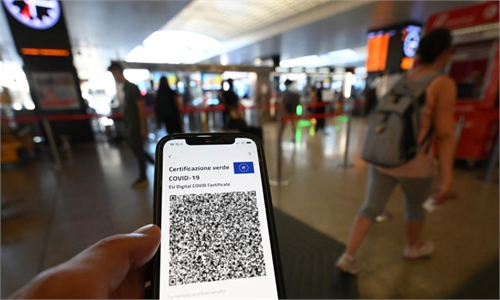
Tourists visit Hongcun Village in Yixian County, east China's Anhui Province, Aug. 31, 2022. Hongcun Village deeply integrates night economy with tourism industry to promote rural development. Photo:Xinhua
After the Chinese authorities announced plans to resume inter-provincial travel with 48-hour negative coronavirus test results, searches for flight tickets nearly doubled at online travel agencies and the stock prices of listed tourism companies rose.Industry insiders expressed optimism for the gradual recovery of the sector, vowing to earnestly comply with anti-coronavirus measures for public health.
According to a notice on the website of the Ministry of Culture and Tourism on Tuesday, management of inter-provincial travel will be optimized.
Inter-provincial tourists must have a negative nucleic acid result taken within 48 hours to make their trips by public transportation. They also have to take nucleic acid tests immediately upon arrival at their destinations, it said.
Following the announcement, searches for such trips on Ctrip reached the highest level since the National Day holidays, data from the online travel agency showed. Searches for flight tickets were up 182 percent and those for train tickets were up 97 percent over the previous day on online travel agency Tongcheng Travel's platforms, Chinese news outlet thepaper.cn reported.
Hong Kong listed Tongcheng Travel Holdings' share price was up about 3.62 percent at the close on Wednesday, and shares of A shares listed Changbai Mountain Tourism Co were up 9.97 percent.
The circular said that inbound and outbound group tour services and package services including tickets and hotel bookings provided by tourism agencies would remain suspended, as will group tour services.
Yang Guanghui, a representative of Chinese online travel agency Qunar, told the Global Times on Wednesday that the document showed that the previous travel suspension mechanisms in provinces that had medium- or high-risk regions would be removed, and travel products involving ticketing and hotel bookings won't be suspended even if there are medium- and high-risk regions.
"The implementation of the latest document will bring more opportunities and choices for both travel agencies and tourists, and the regulation of the one-size-fits-all method and ramped-up management will make the running of the sector smooth," he said.
Jia Jianqiang, CEO of 6renyou, an online tourism agency in Beijing, remained cautious about the new measure, given persistent virus transmission risks in certain regions.
He reminded individual travelers to be aware of local anti-COVID-19 measures. "For example, for travelers living in Beijing, their health codes will display pop-up notifications and they can't go home if they have been to or passed any high-risk region," Jia told the Global Times on Wednesday.
China made a fresh move in scientific and precise epidemic control and prevention work to fight the pandemic by releasing 20 optimized measures in November.
The new measures include cutting the centralized quarantine time for close contacts and international arrivals, and adjusting the categories of COVID-19 risk areas from three categories of "high", "medium" and "low" to just two categories of "high" and "low" to minimize the number of people subject to quarantine.
Multiple provincial-level regions across China have deployed and optimized their implementation of the 20 anti-virus measures. In line with the latest policy, Shanghai decreased the frequency of nucleic acid testing for local primary and middle school students at school to three times every week from five times a week on Sunday.



